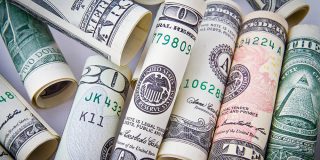
Receding now from memory, the housing and financial crisis of the latter half of the 2000s focused national attention on U.S. companies’ top executives, a group Washington Post columnist Robert Samuelson calls the new economic aristocracy. Americans cried foul to announcements of CEO compensation, especially for those executives who led the largest U.S. banks, some of which the government saved following the crisis.
The backlash has abated, but in September 2016 it resurfaced when U.S. Sen. Elizabeth Warren grilled former Wells Fargo CEO John Stumpf at a Senate Banking Committee hearing. During questioning, Warren asked Stumpf repeatedly if he had resigned or returned “one nickel” of the millions of dollars he was paid during the company’s “cross-selling” scam, in which the bank urged existing customers to open new accounts, whether they needed them or not.
This trend – skyrocketing CEO salaries – has been going on for decades. It started in the 1980s when CEO compensation became increasingly tied to stock prices, which motivated managers to do whatever they could to increase profits. The result of this change is a world in which CEO compensation outpaces that of most U.S. workers 300-to-1. According to the Economic Policy Institute, it was 20-to-1 in 1965. In 2015, the New York Times, relying on estimates from the consulting firm Equilar, reported that the 200 highest-paid CEOs earned an average of $22.6 million a year.
Who are CEOs? Two recent studies by researchers in the Sam M. Walton College of Business offer insights into the realm of this elite class.
CEOs and Social Class: More Money Means More Risk
Jennifer Kish-Gephart studies the relationship between firm-level behavior and the social-class origins of chief executive officers. In a study of 265 CEOs from the S&P 1500, Kish-Gephart, an associate professor in the Department of Management, and colleague Joanna Campbell at the University of Cincinnati found that CEOs with lower and upper social-class origins take greater strategic risks than those who grew up in middle-class families. Within these two high-risk categories, CEOs with upper social-class origins engage in higher levels of strategic risk-taking than their lower social-class counterparts.
“CEOs raised in relative wealth and privilege turn out to be the biggest risk-takers,” Kish-Gephart said. “Having grown up with an abundance of resources, these individuals experienced the benefit of a substantial safety net, so they tend to perceive the world as safe, welcoming and full of opportunity. Middle-class CEOs, not so much.”
Relying on data from a variety of sources, Kish-Gephart and Campbell gauged risk-taking according to three measures for each year of CEO tenure: company spending on research and development, capital expenditures and value of long-term debt.
The researchers also examined the moderating effect of education, especially attendance at 29 colleges and universities identified as “elite.” They found that attendance at an elite college or university tended to reduce risk-taking among CEOs who came from lower social-class backgrounds. However, level of education did not significantly influence risk-taking of CEOs with upper social-class origins.
The study also revealed that a varied management background, in contrast to advancement along a single track, amplified the relationship between CEO social-class origins and strategic risk-taking among executives from both lower and upper social classes.
“Contrary to a dominant discourse in America – that people shed the vestiges of their social-class roots during upward mobility – our work suggests that social-class origins exert a lasting influence on executive decision-making,” Kish-Gephart said. “In short, childhood social class matters, even for those who have reached the heights of the corporate hierarchy.”
Strong Connections Equal Poor Results?
Tomas Jandik’s research seems to uphold Kish-Gephart’s findings, assuming that individuals with upper-class social origins have strong connections to others with the same background. Jandik, a professor of finance in the Walton College, studies the connectedness of individuals, focused on CEOs.
He and colleagues Kathy Fogel at Suffolk University in Boston and Rwan El-Khatib at Zayed University in United Arab Emirates examined CEO connectedness in the context of mergers and acquisitions by S&P 1500 firms from January 2000 to December 2009.
The researchers used BoardEx data to construct a social network of CEOs at U.S. firms. BoardEx compiles and provides biographical information on board members and senior executives around the world and uses information on work, educational and other social relationships to document organizations’ connectivity to the marketplace. These data allowed the researchers to determine the overall importance or power of individuals within a network of nearly 400,000 U.S. corporate officers and directors.
Jandik and his colleagues found that chief executive officers with extensive social connections to board members, executives at other firms, bankers and other financial market participants, initiate mergers and acquisitions more frequently and with poorer results. Moreover, when compared to deals brokered by CEOs with less-extensive contacts, mergers and acquisitions initiated by highly connected CEOs result in greater financial losses for both the acquiring firm and the combined entity.
“As you might expect, an individual’s position in the social network matters,” Jandik said. “But this positioning doesn’t necessarily lead to financial gains for the firms they lead.”
Despite overall losses for firms, these deals brokered by well-connected CEOs result in greater personal benefit to the CEOs themselves, the researchers found.
The researchers also discovered that the ability of highly connected CEOs to control the flow of information, to have  more numerous and powerful friends, and to have more resources to fall back on likely prevented internal and external corporate governance mechanisms to correct the value destruction. For example, despite stock value losses resulting from the acquisitions, well-connected bidder CEOs are unlikely to be dismissed by their boards of directors, and their own companies are less likely to be targeted for acquisition.
more numerous and powerful friends, and to have more resources to fall back on likely prevented internal and external corporate governance mechanisms to correct the value destruction. For example, despite stock value losses resulting from the acquisitions, well-connected bidder CEOs are unlikely to be dismissed by their boards of directors, and their own companies are less likely to be targeted for acquisition.
Jandik and his colleagues investigated possible motives for the value-destructive behavior and found that highly connected CEOs who launched such deals tend to receive substantial salary increases, as well as non-monetary prizes such as honorary degrees or alumni awards, even as their firms suffered negative returns.
“CEOs are often lauded for being influential and well-connected,” Jandik said. “And yes, personal networks can be very beneficial as they provide an effective channel for the exchange of information. What we found, though, is that highly connected executives can also use their influence to become entrenched and to pursue activities regardless of the potentially negative impact on shareholders.
This should be an important concern for corporate boards and other market participants, especially in cases of multi-billion-dollar deals.”
Jandik holds the Dillard’s Chair in Corporate Finance.






You must be logged in to post a comment.